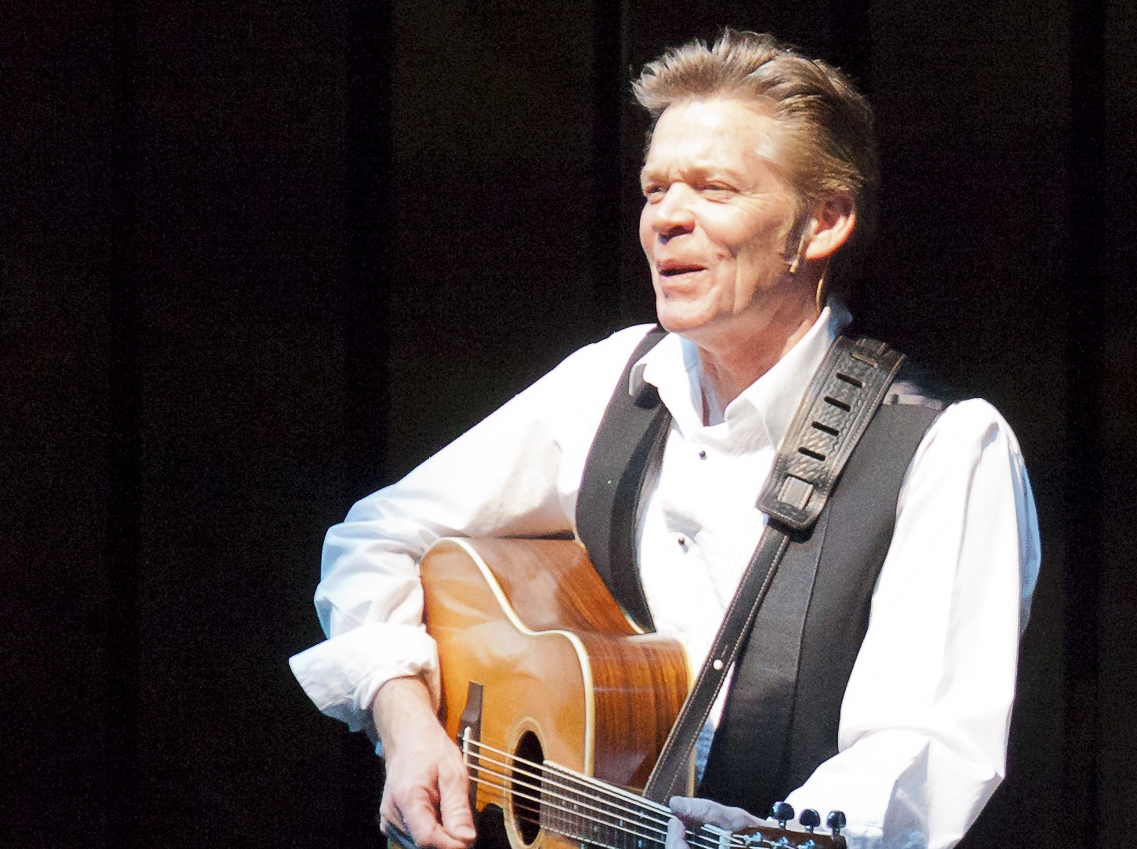
Johnny Cash’s faith represented a “huge part of who he was,” says Jason Edwards, the director and co-star of the traveling tribute “Ring of Fire: The Music of Johnny Cash.”
It’s not a coincidence that Cash’s spiritual nature doesn’t get the attention it deserves, be it via the blockbuster 2005 film “Walk the Line” or other accounts of Cash’s legacy.
“It’s not a popular subject with the media,” Edwards tells Big Hollywood, even if it was the down home truth. “He was really good friends with Billy Graham. He sang with Billy Graham’s crusades.”
And, when it comes to “Ring of Fire,” Edwards says Cash’s spirituality isn’t lost in the arc of the remarkable man’s career.
“A the end of his life he wrote some really spiritual stuff … and he originally wanted to get a [record] deal as a gospel singer in Sun Studios,” he says. “[Show creator Richard Maltby, Jr.] did not steer away from the spiritual side of Johnny Cash.”
“Ring of Fire,” playing through May 13 at The Stage Theatre in Denver, made its Broadway debut back in 2006. The new version of the show offers some wrinkles to the original format, including a stripped down cast. But Edwards says the focus remains on Cash’s enduring, complex character.
“We show respect for him, the music and who he was … we try to touch on the down home side, the country boy side, the outlaw side, the drug side, the spiritual side,” he says.
Edwards grew up in the mountainous region near Asheville, N.C., certainly Cash Country from what he could tell.
“You can’t live in the South and not know who he was,” he says. But back in 1969, a pre-teen Edwards got an up-close look at the legend in his prime. A family connection got Edwards near the front row of a Cash concert in nearby Charlotte. He saw June Carter Cash, Carl Perkins and the Man in Black himself.
“I was blown away,” he recalls.
Years later, he learned about Cash all over again as part of the “Ring of Fire” show. He re-read lyrics to not just the Cash classics like “Walk the Line” but more obscure tracks where the singer’s genius really shined.
“I learned a lot about him as a man and a songwriter,” he recalls. “He was a real patriot and a Christian man, too.”
Some New York-based critics lumped “Ring of Fire” in with other “jukebox” theater shows like “Movin’ Out” and “Rock of Ages.” Edwards bristles at the comparison – he doesn’t see “Ring of Fire” fitting in with any standard theatrical model.
He says the show’s hardest earned stamp of approval came not in New York City but in Little Rock, Ark.
“It was right outside where he grew up … I thought that at if we could pull it off in Arkansas, where these people, they know all about him … we’re doing well,” he says.
Cash’s music remains an integral part of the country’s ever-evolving songbook, and Edwards doesn’t see that changing any time son.
“It’s just a cool rockabilly groove that’s never gonna go away,” he says of the potent combination of stand-up bass, acoustic guitar and snare drum that Cash brought to his craft.
And, if you can’t check out “Ring of Fire” in any of its incarnations, just read the lyrics to “Man in Black,” he suggests.
“That’s all they need to know about where his head was and where he was coming from,” he says. “[Cash] didn’t go by the format or the formula that the music industry thought that he should. He sang and wrote about what he cared the most about, and ‘Man in Black’ sums it up.”
(Photo Credit: Vicki Kerr)

COMMENTS
Please let us know if you're having issues with commenting.